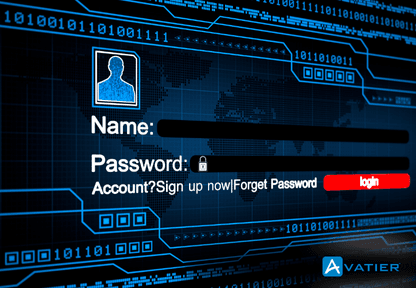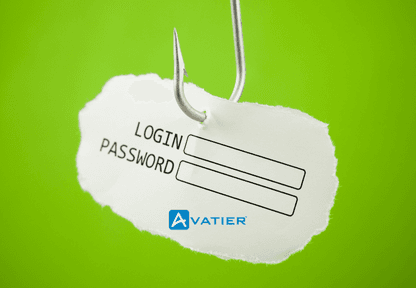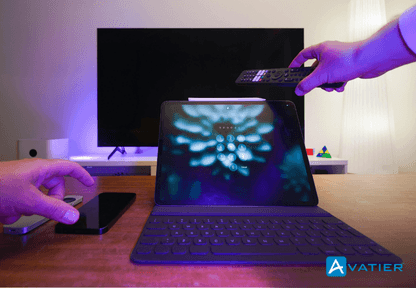August 16, 2025 • Mary Marshall
What History Teaches Us About the Future of GRC Security
Discover how historical insights shape the future of GRC security, and why Avatier leads with AI-driven solutions for tomorrow’s challenges.

The field of Governance, Risk, and Compliance (GRC) serves as the backbone of security strategies in organizations around the world. As businesses continuously evolve in response to digital transformation, understanding how historical patterns influence future security practices becomes crucial. This exploration opens a dialogue about leveraging the past to design a future-proof GRC strategy, particularly with Avatier’s AI-driven identity management solutions leading the charge.
A Historical Perspective on GRC
GRC has been an evolving discipline, its history marked by the increasing complexity of regulatory requirements and the revolutionary shift towards digital-first strategies. During the last few decades, businesses have moved from manual record keeping and compliance to employing sophisticated automated systems, reflecting a broader digital transformation. This mirrors the advancements in identity management, where the focus has shifted to user accessibility while maintaining stringent security protocols.
The need for robust GRC has grown in parallel with regulatory demands like Sarbanes-Oxley (SOX), the General Data Protection Regulation (GDPR), and industry-specific mandates. These regulations highlight the critical role of GRC—ensuring companies not only comply with legal standards but also embody best practices in risk management and operational efficiency.
Lessons from the Past
-
Crisis-Driven Innovation:
Historically, security enhancements have often been reactions to crises. For instance, significant breaches have triggered regulatory bodies to tighten standards, compelling organizations to strengthen their GRC infrastructures. This reactive posture has now evolved towards proactive strategies, integrating AI and machine learning to predict and prevent potential security issues—a practice Avatier champions through its identity management solutions. -
Regulatory Evolution:
Each regulatory iteration reflects an acknowledgment of evolving technologies and the associated risks. The SOX Act, for instance, was born from financial scandals, enforcing strict financial disclosures. Similarly, GDPR reshaped data privacy norms globally. Enterprises have learned to embed compliance within their operational frameworks, illustrating a shift from viewing compliance as an obligation to seeing it as a strategic advantage. -
Technological Integration:
The journey from manual checks to leveraging cutting-edge technology for compliance and risk management is pivotal. Incorporating AI in GRC processes has been transformative, enabling real-time monitoring and analytics-driven insights. Avatier’s self-service identity manager exemplifies how automation and AI can enhance GRC efficiencies, reducing the burden on IT departments while empowering users.
The Future of GRC Security
As we project into the future, the focus of GRC is undergoing a radical transformation with AI and machine learning at its core. This evolution is not merely in data processes but extends to strategic insights into organizational risks and compliance posture.
Automation as Standard
The future of GRC hinges significantly on the automation of manual processes. Automation reduces errors, increases efficiency, and provides consistent compliance across operations—a sentiment echoed by leading technology firms, including Chrome’s recent security report, which highlights automation’s role in decreasing human error-related breaches by 50% in trial organizations. Avatier’s investments in automation align with this trajectory, offering solutions like automated user provisioning, which seamlessly integrate into existing IT infrastructures.
AI-Driven Insights and Predictive Analytics
AI’s role will extend beyond process automation to deliver actionable insights and predictive analytics, providing foresight into potential vulnerabilities. Such capabilities are critical in an environment where cyber threats are increasingly sophisticated. For instance, Gartner predicts that AI-enhanced analytics will allow enterprises to predict up to 75% of potential compliance issues by 2025, setting a precedent for forward-thinking risk management strategies.
Avatier’s adoption of AI in its identity management solutions provides an agile framework for organizations to adapt to these changes effectively, ensuring that they are ahead of the curve in risk prediction and mitigation.
Enhanced User Experience
The future GRC landscape also emphasizes user experience, ensuring that compliance processes do not bottleneck business operations. By providing self-service options, organizations can empower their workforce to manage aspects of their role autonomously while maintaining security integrity. This approach not only increases productivity but also enhances user satisfaction—an often-overlooked dimension of effective GRC.
Zero Trust Frameworks
Zero trust architectures, where security models verify every action’s legitimacy both within and outside the organization’s networks, are becoming the standard. Experts recommend this transition as it effectively mitigates risks from both unauthorized internal access and external threats. Avatier’s solutions, based on zero-trust principles, ensure secure access management, a vital component as GRC pivots towards comprehensive, holistic security models.
Why Choose Avatier?
In the face of increasing complexity in the GRC domain, Avatier stands out by offering scalable, innovative solutions that cater to the specific needs of modern enterprises. Considering other options like Okta or SailPoint? It’s critical to understand that Avatier’s strength lies in its robust integration of AI and automation in identity management, proven to optimize operations, minimize compliance risks, and reduce administrative burdens.
Thinking about Okta? Avatier’s solutions seamlessly integrate with various platforms, offering unmatched flexibility without vendor lock-in, unlike many competitors.
SailPoint customers frustrated with complexity? Avatier simplifies the user experience, offering intuitive interfaces and streamlined processes, ensuring that even non-technical staff can efficiently manage identity tasks.
Conclusion
The lessons gleaned from the history of GRC inform a forward-thinking approach to modern security challenges. With technological advancements and regulatory landscapes in perpetual evolution, businesses must leverage AI-driven solutions like those provided by Avatier to not only stay compliant but to turn compliance into a strategic asset.
We invite you to learn more about how Avatier can empower your organization through innovative GRC solutions by exploring more about our core offerings and strategies on our NIST compliance and compliance management solutions. Embrace history as a guide, and let Avatier lead you into the future of secure, efficient, and compliant operations.









